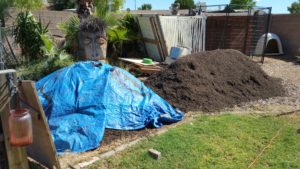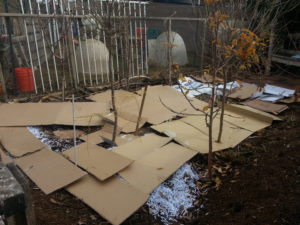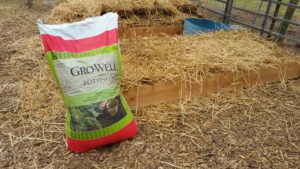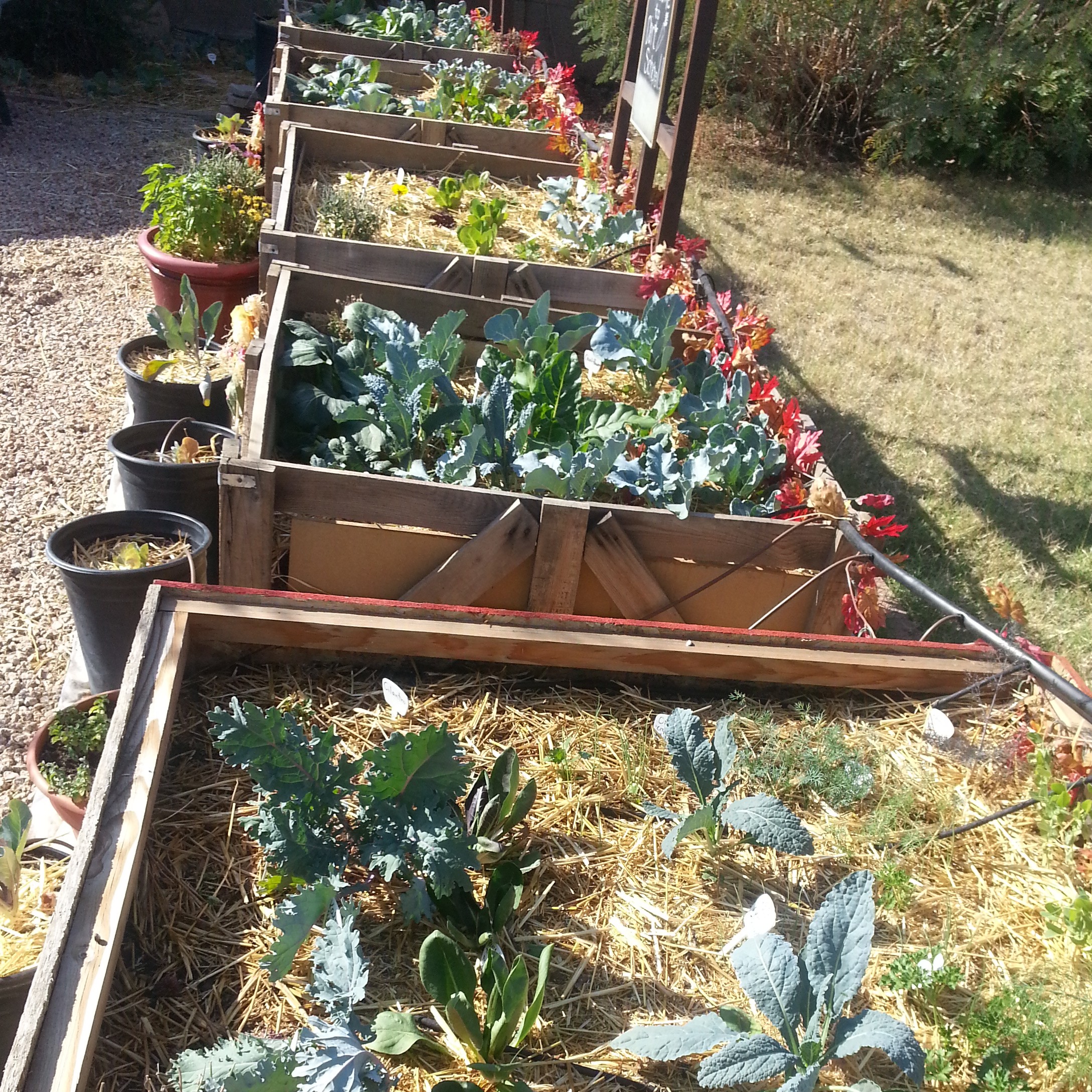
Mulch is a layer of organic matter that is spread on top of garden soil like a blanket. Compost, wood chips, bark, pine needles, dry leaves, newspaper, hay and straw are common mulch materials. The wood chip mulch pictured here was acquired for free from a local tree service. Arborists will often prefer to gift a load of wood chips to a gardener rather than take them to the dump. So if you are interested in using wood chip mulch, call around and find out if you can acquire a clean load (free of thorns) for free or for a low service fee.
Mulch serves a number of wonderful purposes, from suppressing weeds and regulating soil temperature to attracting earthworms and providing nutrients. It is also extremely useful at reducing water evaporation from soil, thereby improving the garden’s water holding capacity. Additionally, mulch aids the infiltration of surface water through the top layer of soil so that when it rains or when you irrigate, the water will penetrate the soil more readily instead of pooling or running off.
At The Micr o Farm Project, we use straw, wood chips, pine needles or cardboard as mulch. In the photo to the left, the garden bed was very dry and the clay soil was compacted. In order to hold moisture and attract earthworms to break up the soil, I covered the ground with a layer of cardboard. I then buried the cardboard in six inches of compost. The white substance that you can see peeking out from under the cardboard is gypsum, which is useful to break up tightly-bound clay particles. I planted clover in the compost and allowed the cardboard to break down for several months before planting flowers and a few edibles in this area.
o Farm Project, we use straw, wood chips, pine needles or cardboard as mulch. In the photo to the left, the garden bed was very dry and the clay soil was compacted. In order to hold moisture and attract earthworms to break up the soil, I covered the ground with a layer of cardboard. I then buried the cardboard in six inches of compost. The white substance that you can see peeking out from under the cardboard is gypsum, which is useful to break up tightly-bound clay particles. I planted clover in the compost and allowed the cardboard to break down for several months before planting flowers and a few edibles in this area.

I use wood chips in my landscape, where their slow decomposition is an asset. However, my preferred vegetable garden mulch is straw. It breaks down quickly, does not inhibit seed germination, and does not seem to cause surface nitrogen deficiency associated with wood chips. Alfalfa hay is another option, keeping in mind that it may contain seeds. When the seeds germinate, the alfalfa that grows is leguminous, which means that it will set nitrogen in the garden. So, although it my not seem favorable to have alfalfa hay sprouting in the vegetable garden, the added nitrogen is a plus.
Learn more about mulch by reading Mulch: Types and Uses by Anni at Homestead and Gardens.


